Get support for student success - right in your inbox
NHLI | New Hampshire Learning Initiative
All Students Deserve a Quality Education
/ October 31, 2018
Co-Designing Learning WITH Students: A Snapshot at Souhegan High School
Originally published in EdWeek, October 11, 2018
Authors: Sloan Facques and Zoe Garvey, Seniors, Kathy Maddock, Teacher, Kathy White, Dean of Instruction, and Rob Scully, Principal, all at Souhegan High School; and Jonathan G. Vander Els, Project Director for the New Hampshire Learning Initiative
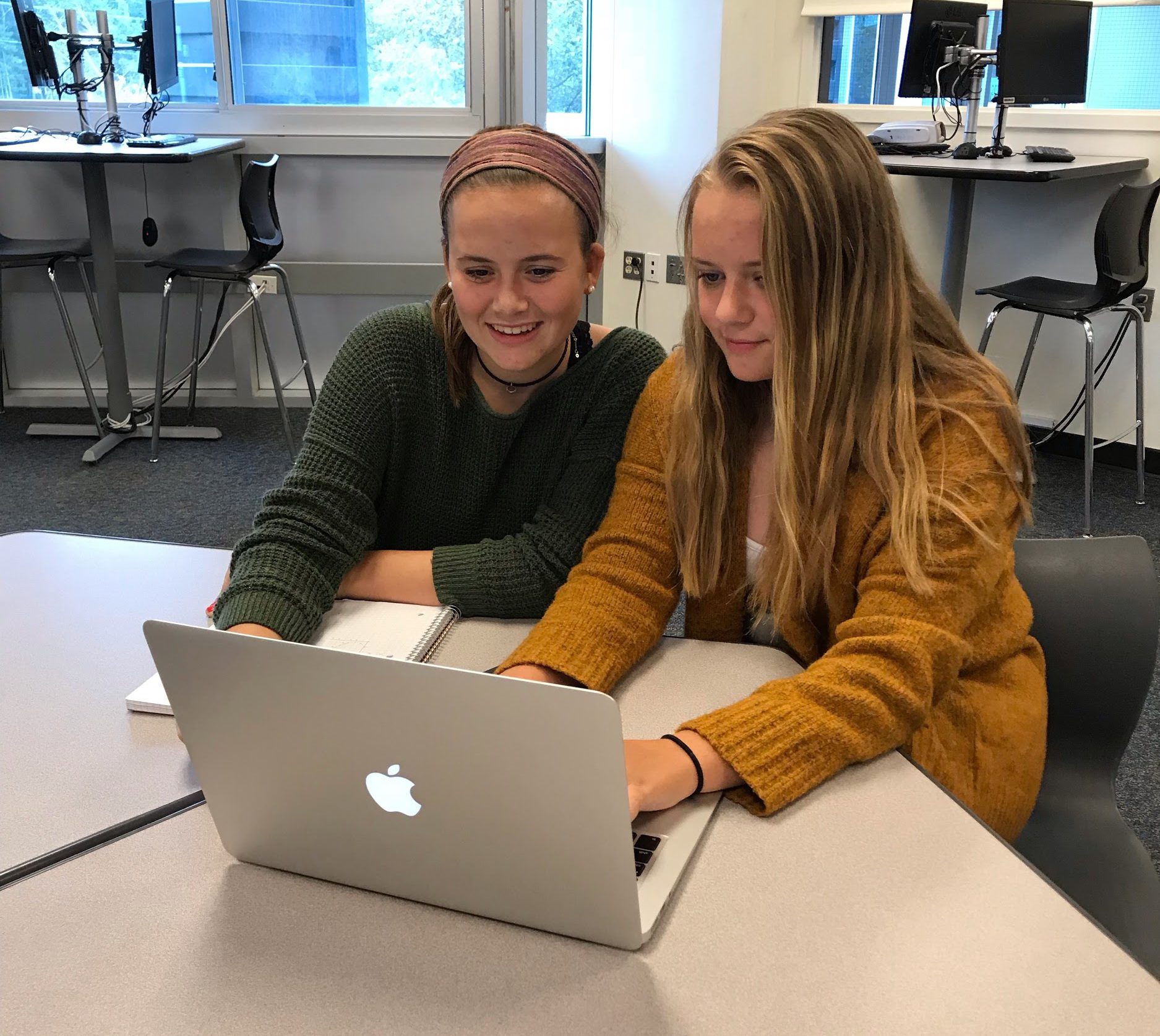
The team behind New Hampshire’s Assessment for Learning Project (ALP) continues to provide greater opportunities for students to lead their learning through a personalized, competency-based approach.
A Focus on Co-Design
The state’s ALP effort has evolved significantly based upon our first two years of work. The New Hampshire Learning Initiative, partnering with the National Center for the Improvement of Educational Assessment (NCIEA) and Envision Learning Partners, expanded our efforts with a two-pronged approach to personalizing competency-based learning: one focused solely at the primary level and the other one across the K-12 spectrum. The essential question that guides our work throughout the project is: How can students and teachers collaborate to co-design learning and assessment WITH students?
For the primary grades our focus has been on developing greater student agency and equity. Our process for creating curricular units integrates opportunities for co-design with students in the areas of curriculum, instruction, and assessment. This past summer, participating elementary teachers worked closely with Dr. Scott Marion and Dr. Jeri Thompson from NCIEA on the unit developed and implemented during the 2017-2018 school year. They are developing another co-designed learning experience for the 2018-2019 school year.
The New Hampshire ALP project’s K-12 group, led by Michael Turmelle and with support from Alcine Mumby from Envision Learning Partners, is focused on student exhibition opportunities. This collaborative learning design model engages students and teachers in collaboratively designing student demonstrations of learning that increase student agency and equity.
Eventually, the resulting co-designed assessments and student exhibitions from the primary grades cohort and the K-12 group will be incorporated into PACE, New Hampshire’s Performance Assessment of Competency Education effort.
Co-Design with Souhegan High School Students
Souhegan High School in Amherst, New Hampshire opened its doors in September 1992. Souhegan is a vanguard member of the Coalition of Essential Schools, inspired by education reformer Ted Sizer. The school’s mission statement guides its daily practices. The Common Principles of the Coalition of Essential Schools, Academic Learner Expectations, and Souhegan Six influence all aspects of the school’s teaching and learning. The school aims for an engaging and personalized learning environment by encouraging students to be active learners immersed in interdisciplinary curriculum, heterogeneous classes, and performance tasks. These founding ideals are a unifying force for the entire school community.
Souhegan has been a leader in providing opportunities for student agency and is one of the original PACE schools. A team from Souhegan participates in the New Hampshire ALP project’s K-12 group focused on student exhibitions. Their story from last school year provides insight into how co-designing with students and amplifying student voice can pave the way for more meaningful learning opportunities for all students.
The snapshot below provides perspectives from various members of Souhegan’s community—students, teachers, and administrators—as the school transitioned from a “Junior Research Paper” to a “Junior Learning Project.” Each perspective is framed by a question around agency and student-centered learning.
The Student Perspective: Zoe Garvey and Sloan Facques
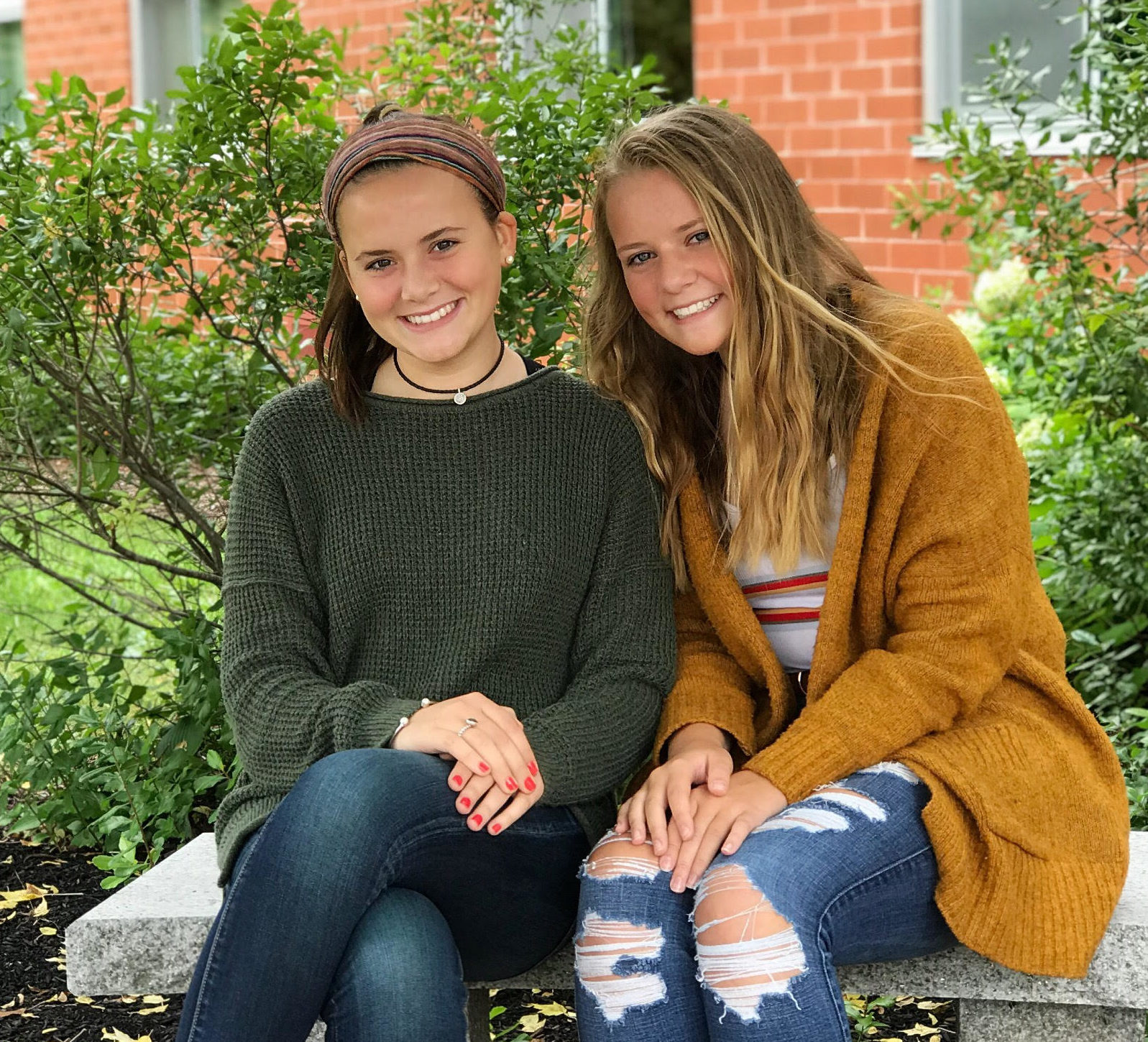
Zoe Garvey and Sloan Facques are seniors at Souhegan High School. Zoe’s primary academic interests are in math and science, specifically focused on engineering. Sloan’s are in writing, as she manages the student led writing center. Zoe and Sloan both participate in varsity sports and both serve on the Ethics Forum. Zoe and Sloan are active in co-designing what school can look like for them at Souhegan High School.
As a student at Souhegan High School, can you share how you have opportunities to lead your own learning?
As students at Souhegan, everyone has the opportunity to play a significant and genuine role in their own learning. In the classroom, although given an overarching task, how students actually go about completing the task often falls in their own hands. Many of these tasks are project-based, collaborative assignments that provoke deeper thinking and application of knowledge. Outside of the classroom, students have numerous opportunities to become involved in the school community and beyond; we play a large role in many of the decisions made in the school. The governing body of the school is a student-led Community Council which is “entitled to act on and make policy concerning issues of importance to the Souhegan community.”
There are many other student-led groups using Souhegan’s guiding principles. The Ethics Forum “desires to offer opportunities for all high school students throughout New Hampshire to broaden their worldview, to develop ethical leadership skills, to give back to their own communities and to participate in meaningful philosophical conversations.” By stepping back, Souhegan empowers and encourages students to step forward and play a role in their own learning and community.”
Can you share how you became involved in the student exhibition (Junior Learning Project) and what that experience has been like?
Last year, a small group of students were chosen to work with a similar amount of teachers to reconstruct the Junior Research Paper. Over the past couple months, we have worked to make the project and its requirements more substantial. Although we are still in the revision process, we have made significant progress with advancing the expectations of the project. As students in this revision group, we have worked, and continue to work, alongside the teachers to come to a mutual consensus as to what our vision is for the future of this project.
A Teacher Perspective: Kathy Maddock
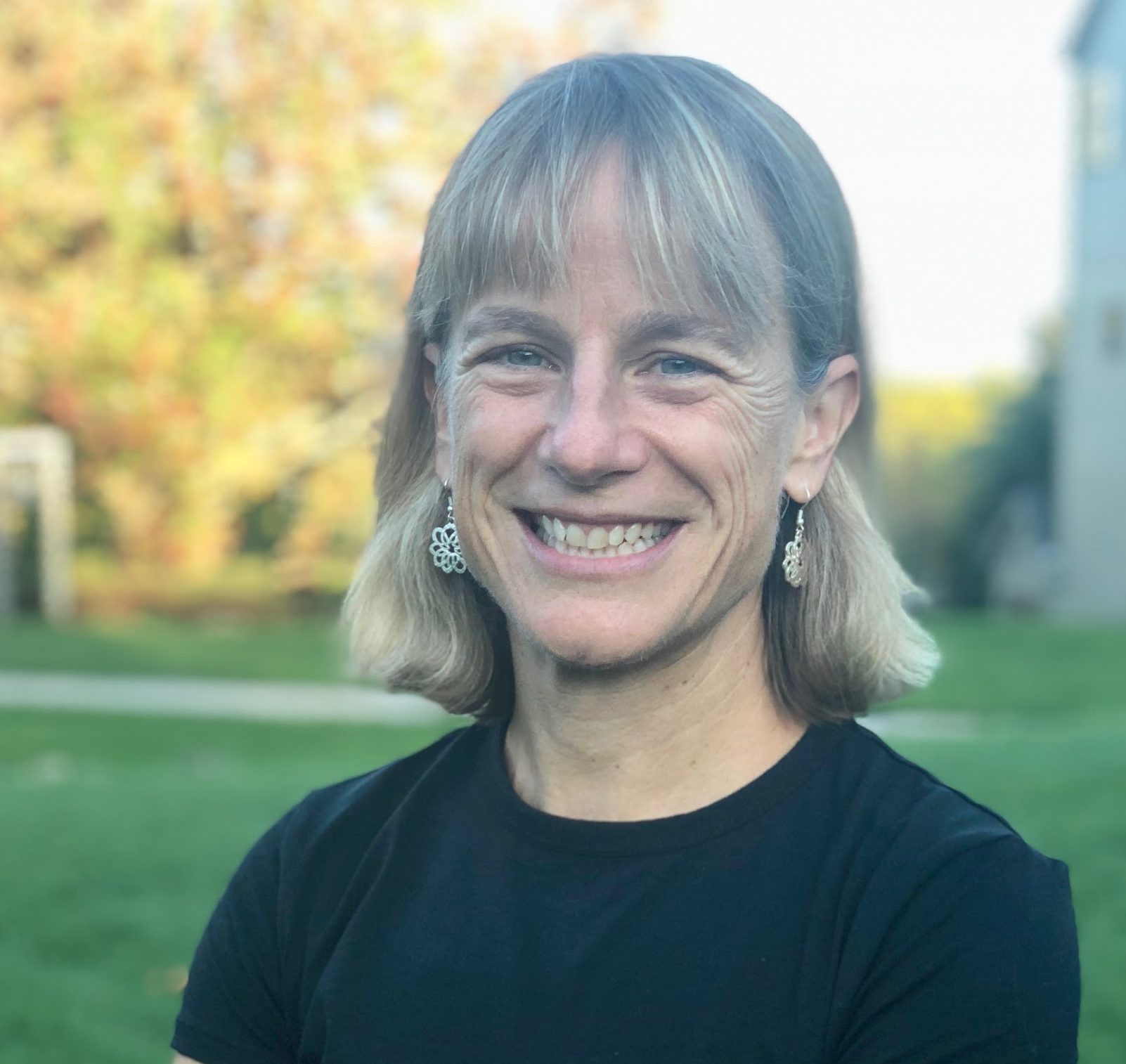
Kathy Maddock is a social studies teacher at Souhegan High School where she has taught for 20 years. For the past six years Kathy has also served as coordinator for Souhegan’s Senior Project, a year-long, research-based project that is a Souhegan graduation requirement. In 2017 she was the state co-lead for the New Hampshire PACE work focused on Capstone Projects.
Can you share how you became involved in the student exhibition (Junior Learning Project) and what that experience has been like?
We began the revision process for our Junior Research Paper with a team of teachers and administrators only. The idea to add students to the group occurred to us during the middle of one of our initial meetings, so we took a quick break and pulled in a few students from the library. We envisioned that the students would provide input for a meeting or two and then leave the group. Once we started our work together, however, we realized how essential their voices are; these students have since become permanent members of our group. We are continually impressed by not only how thoughtful they are, but by how interested they are in helping us make the research project not easier or shorter, but rather one in which they can engage in deeper learning and create stronger and more sophisticated research papers.
The Administrator Perspective: Kathy White and Rob Scully
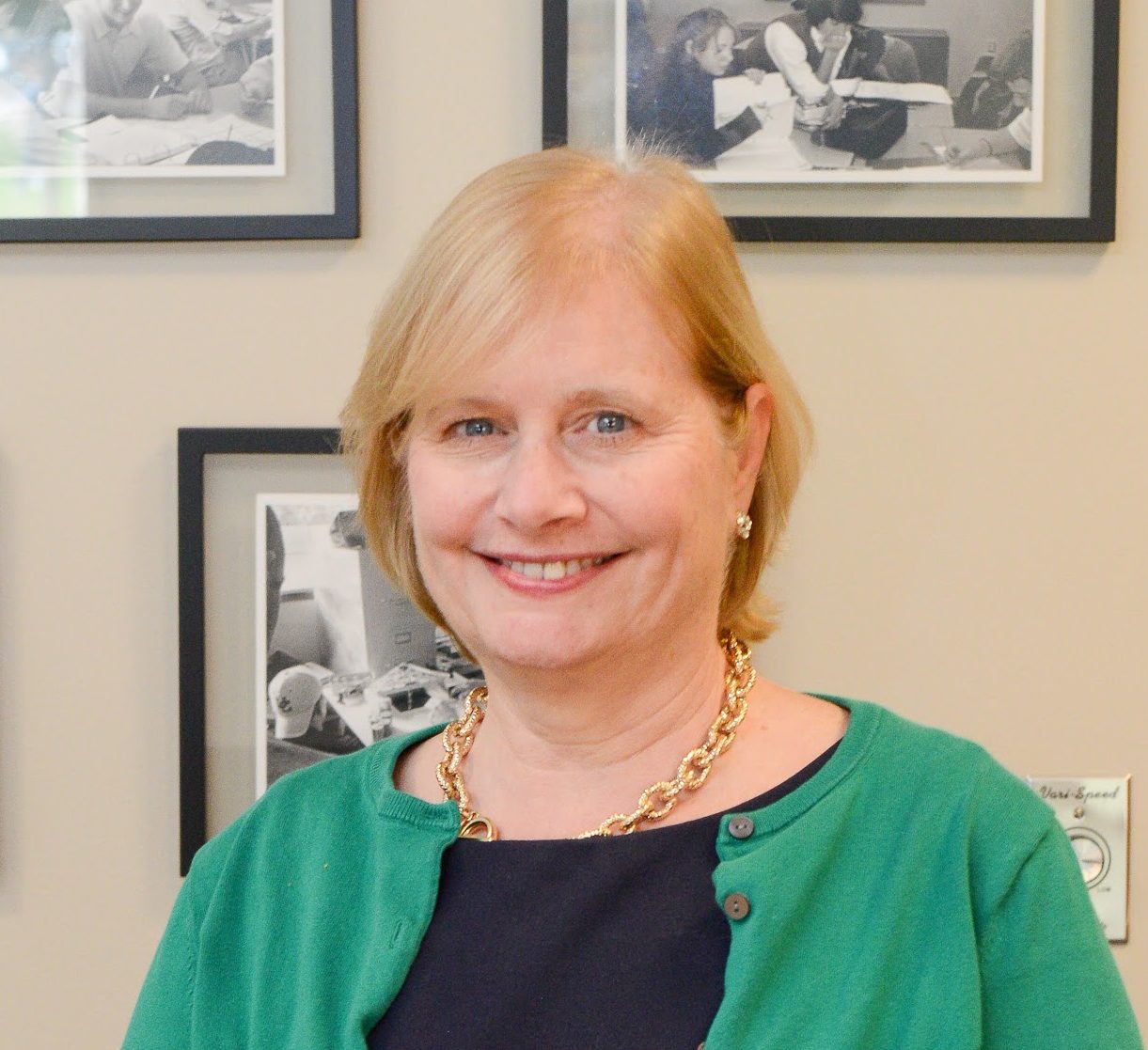
Kathy White is a Dean of Faculty at Souhegan High School in Amherst, NH. An educator since 1984, Kathy joined Souhegan in 1992 as a technology and business teacher. In 2014, Souhegan joined the NH PACE accountability pilot. Kathy’s role as the school based lead for PACE includes facilitating the process of revising Souhegan’s Academic Learner Expectations.
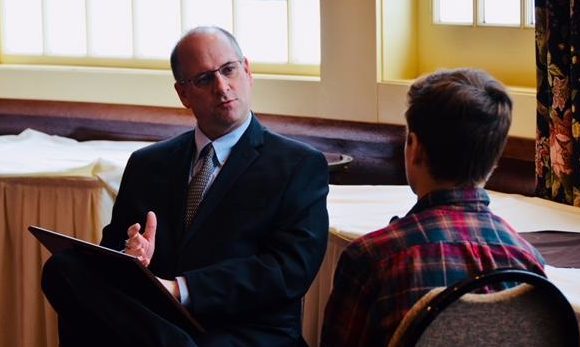
Rob Scully is Principal at Souhegan High School in Amherst, NH. Souhegan. Rob taught humanities and served as Dean of Students. As principal, in collaboration with his leadership team, Rob has initiated a transformation to a deeper learning system focused on competency-based learning. A critical element in this transformation has been students serving as co-designers for their learning. Rob was named the 2018 New Hampshire Principal of the Year.
How do you as a leadership team ensure that these types of opportunities do not happen in a vacuum? What structures have you put in place to provide these opportunities for agency throughout your school?
Learner agency is not a catch phrase; it is a culture. Agency flourishes in an integrated environment where staff and students are given permission to imagine, are supported in their innovation and are expected to collaborate. Prior to examining curriculum design and instructional methods, Souhegan High School focused on two important elements: relationships and authenticity. The Carnegie Corporation identifies relationships where students are valued and authentic learning where students see purpose as key components to building agency.
For students, their value is affirmed by our team structures and whole school advisory program. Within these structures students build the relationships as well as the skills
necessary to contribute to the design of their own learning experience.
For teachers, we commit to the training and support necessary to develop engaging, relevant curriculum that authenticates the learning in a project-based environment. Leadership
meets with each teacher to design a professional growth plan that promotes
design thinking.
Additionally, a collection of capstone experiences provides students an opportunity to gain a deeper understanding of themselves. Student led parent conferences, tenth grade exhibition junior research paper and senior project require students to be the primary communicator, researcher, evaluator and developer of their own learning.
Categories: Competency-Based Learning (CBL)
